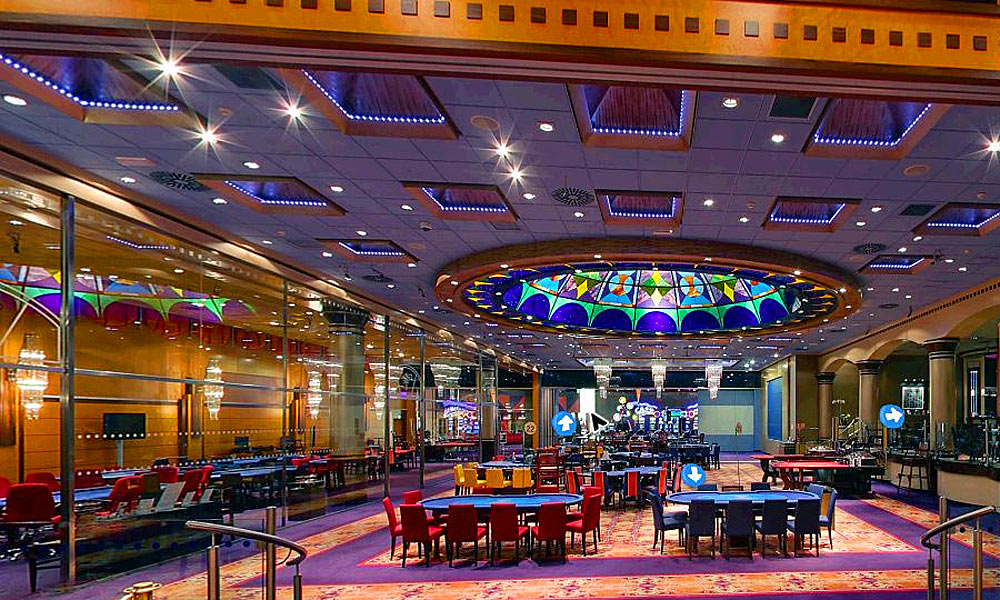
Gambling games have long been a engaging source of amusement, drawing numerous of players from varied cultures around the globe. From the glitzy casinos of Vegas to the thriving gambling halls of the Cotai Strip, these games serve as a common thread that unites people across a variety of backgrounds. The allure of chance, strategy, and risk entices not only those looking to win money but also those looking for a shared experience.
The significance of casino games extends significantly past the gaming floor. They often embody the cultural standards and traditions of the societies in which they prosper. Games such as seven-card stud, blackjack, and roulette have embedded themselves into the mosaic of cultural phenomena, influencing multiple fields from cinema to fashion. As we explore this fascinating intersection of gambling and society, we can comprehend better how these games shape and are shaped by the environment surrounding us.
Historical Evolution of Casino Activities
The beginnings of gaming games can be tracked back to ancient cultures, where betting in multiple forms was widely practiced. UK casinos not on GamStop In the East, around 2300 BC, a form of luck game known as Keno was well-known, while in old Rome, soldiers would frequently wager on the consequences of their contests. The concept of using chance for entertainment and profit evolved over the ages, leading to the formation of more organized games. By the late Middle Ages, betting houses initiated to emerge in Europe, especially in Italy, which presented early versions of popular games still enjoyed today.
As gambling expanded popularity in the continent, the 17th and 18th centuries saw the rise of gaming houses as exclusive locations for betting. The first official casino, the Ridotto, was founded in the Venetian city in 1638, providing activities like Baccarat and Faro games. This period marked a major shifting point, as casinos commenced to welcome not just the high society but also the growing middle-income class. The refinement of games grew, leading to the development of new regulations and versions that enhanced the play experience.
In the 19th century, the industrial age and transformations in societal norms additionally changed the environment of gambling games. The arrival of roulette and new gaming machines drew a larger audience, and casinos became seen as legitimate forms of entertainment. This era witnessed the international spread of casino activities, as casinos expanded from the continent to the Western Hemisphere, culminating in the development of the legendary Las Vegas Strip in the 20th century. The evolution of gaming games has persisted into the present day, integrating modern technology and digital platforms, rendering them available to a global population.
## Cultural Importance across Different Communities
Gambling games have deep-rooted social importance within numerous cultures across the globe. Places like Las Vegas, the very core of the city is woven around gaming venues, where gaming is not just a pastime but a key aspect of entertainment and community life. The vivid lights and vibrant atmosphere attract countless individuals, showcasing how games of chance can impact local economies and cultural uniqueness. This environment transforms the notion of leisure into an engaging event that influences fashion, music, and even cinema.
In contrast, some communities view wagering with more caution, viewing it through the lens of ethical beliefs and customs. A case in point, in various Oriental societies, games like Mahjong and Pai Gow Gambling are rich with history and possess significant social implications. These games are often played during get-togethers and festivities, fostering community bonds and reinforcing familial ties. The act of engaging in these games goes beyond mere entertainment, reflecting principles such as deference to seniors and the importance of communal fun.
At the same time, in continental countries such as the principality of Monaco and Rome, casino games serve as symbols of opulence and sophistication. The refined atmosphere of these venues attracts both tourists and residents, upholding a sense of status and elitism. The art of poker and the strategic features of games like banker’s game are esteemed, molding interpersonal interactions and establishing an appeal that enthralls a diverse audience. This underscores how casino games can simultaneously reflect and influence societal views towards risk, gain, and relationship building.
Financial Influence and Travel Industry
Casino games play a important role in the economic landscape of many areas, particularly those that rely heavily on visitor traffic. The revenue produced from gambling establishments fuels local economies, creating employment opportunities not only within the casinos themselves but also in related sectors such as hospitality, dining, and recreation. This surge of tourists, drawn by the allure of gambling and the overall gaming environment, stimulates spending across multiple local enterprises, contributing to the economic vitality of the area.
The presence of casinos often leads to the construction of facilities, including hotels, transportation systems, and recreational facilities. These improvements are essential in improving the overall tourist experience, making locations more attractive to visitors. Additionally, many casinos invest in local communities through sponsorship of events and philanthropic activities, further embedding themselves into the social fabric of the region. Such contribution not only supports economic growth but also fosters a positive image of the gambling sector.
In addition, the global popularity of casino games drives tourism competition, with locations vying to attract gamblers from around the world. Iconic destinations like Las Vegas and Macau have become identifiable with casino culture, drawing millions annually. This advantage encourages creativity and variety within the gambling sector, influencing trends in leisure and hospitality that extend beyond their borders. The consequences of this visitor influx extend far, impacting local financial health and cultural exchanges on a worldwide scale.
